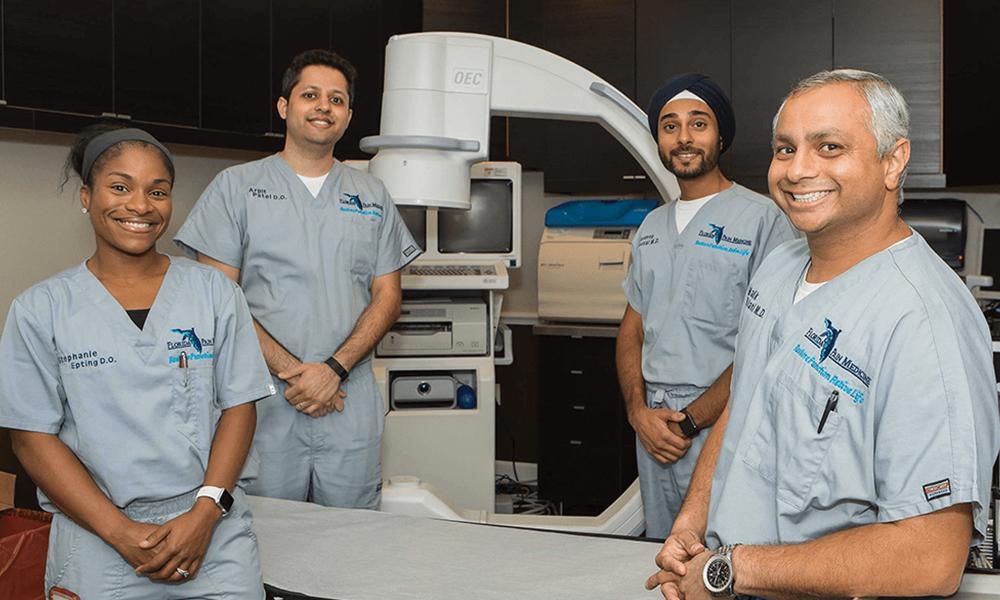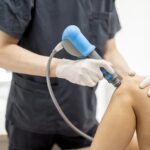
Radiofrequency ablation, or RFA, is a pain relief procedure. A radio wave produces an electrical current that heats a small amount of nerve tissue. This causes pain signals to be decreased.
What Conditions Can Radiofrequency Ablation Treat?
RFA can be used for patients suffering from chronic (long-lasting), low-back, or neck pain, as well as pain due to degeneration of the joints caused by arthritis.
How long does pain relief from radiofrequency ablation last?
The cause and location of the pain will determine the degree of pain relief. Pain relief can last anywhere from 6 to 12 months, and sometimes for years. RFA is used to provide pain relief for more than 70% of patients.
Radiofrequency ablation is safe?
RFA has been proven safe and effective in treating some types of pain. It is also generally well tolerated with few complications. There is a small risk of infection or bleeding at the site of insertion. Your doctor will be able to advise you on your specific risk.
What are the side effects of radiofrequency ablation?
RFA can cause some side effects, such as swelling and bruising around the treatment site. However, this usually disappears after a few days.
Who should not have radiofrequency ablation?
RFA, like any other medical procedure, is not suitable for all. Radiofrequency ablation, for example, is not recommended for those with bleeding issues or active infections. If you are not a candidate for radiofrequency ablation, your doctor will advise you.
How do I prepare for radiofrequency ablation?
You should be prepared for radiofrequency ablation treatment by taking the following precautions:
You should not eat for six hours after your appointment. However, you can have clear liquids up to two hours prior to the procedure.
You must adjust insulin dosage if you have diabetes or use insulin. This adjustment can be made by your primary care physician. You should bring your diabetes medication so that you can continue to take it after the procedure.
Take all medications as usual. Have a glass of water. You should bring all medications with you to ensure that you are able to take them after the procedure. Note: Consult your primary doctor before discontinuing any medication.
After the procedure, you will need someone to drive you home. After the procedure, you should not drive or operate any machinery for 24 hours.
What happens during radiofrequency ablation?
A doctor will evaluate you. A doctor will discuss radiofrequency ablation with you, as well as possible side effects and complications if it is recommended.
Any questions you might have, the doctor will be happy to help.
A vein may be inserted into your arm to allow for IV lines. Local anesthetics and mild sedatives may also be used to ease discomfort during RFA. To aid in proper assessment, you may be awake at times. Talk to your doctor for more information.
The doctor will administer local anesthesia, which will keep you awake but not in pain. Your doctor will use an X-ray to guide the needle precisely to the target area. To stimulate the process, a microelectrode will be inserted into the needle.
Your doctor will ask you if you feel any tingling sensations during the procedure. The stimulation procedure is designed to determine whether the electrode is located in the best area for treatment.
After the needle and electrode are placed, a radiofrequency current is passed through the electrode into the surrounding tissue. This causes the tissue to heat. During the heating part of the procedure, you should not feel any discomfort.
What happens after radiofrequency ablation?
After radiofrequency ablation
A nurse will monitor your pulse and blood pressure while you are in recovery.
The injection site will be covered with a bandage.
The nurse will offer you a drink and go over your discharge instructions.
You must be driven home by someone else.
Can I resume my normal activities after radiofrequency ablation?
There will be some restrictions after radiofrequency ablation.
After the procedure, you should not drive or operate any machinery for 24 hours.
You may resume your normal diet.
For the first 24 hours following the procedure, do not engage in strenuous activities.
You may not take a shower for up to two days following the procedure.
Before you go to bed, remove any bandages.
This article was written by a medical professional at Florida Medical Pain Management. Florida Medical Pain Management is proud to offer comprehensive pain management services to a diverse group of patients. Patients at Florida Medical Pain Management can get help managing hip, knee, leg, and neck pain. The practice also offers comprehensive arthritis management, along with treatments for auto accidents, sports, and work injuries.







